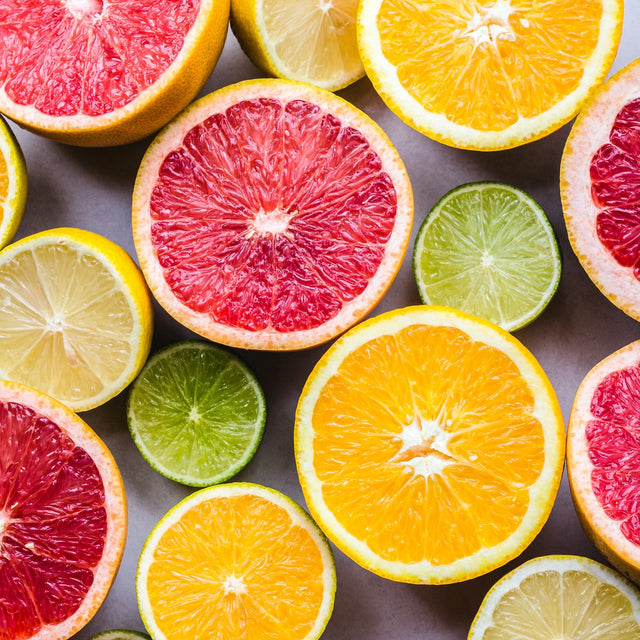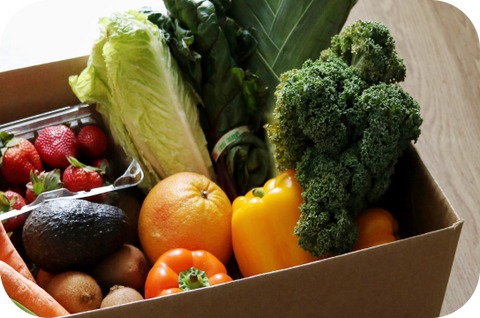

Like many others, you might have been advised by doctors, family, friends and even articles to increase your vitamin C intake to boost your immune system. Let's talk about what vitamin C really is and what fruits/vegetables can help you reach your daily limit!
What is Vitamin C?
Vitamin C, or ascorbic acid, is a water-soluble vitamin that controls infections and heals wounds. It is a powerful antioxidant that helps protect cells and maintains healthy skin, blood vessels, bones and cartilage.
The current daily value for vitamin C is 90 mg for adults and children age 4 and above. Without enough vitamin C, there is a higher susceptibility to infections, bleeding gums, frequent bruising and infections, poor wound healing, anemia, and scurvy (severe vitamin C deficiency).
In addition to multivitamins and single-ingredient supplements, vitamin C is found in a wide variety of fruit and vegetables.
What Produce Are High in Vitamin C?

1. Citrus Fruits (Orange, Grapefruit)
- Citruses make up a significant portion of dietary vitamin C intake. One medium-sized orange provides 83 mg of vitamin C while a grapefruit contains 68 mg.
2. Kiwi
- One medium kiwi contains 56 mg of vitamin C. Research also shows that kiwis can have an inhibitory effect on blood platelets.

3. Strawberries
- One cup of strawberries contains 98 mg of vitamin C. Strawberries are also rich in manganese, flavonoids, folate, and other beneficial antioxidants.
4. Broccoli
- One-half cup of cooked broccoli contains 50 mg of vitamin C or 57% of the daily value.

5. Peppers
- One green chili pepper contains 109 mg of vitamin C and one red chili pepper delivers 65 mg. Meanwhile, bell peppers' vitamin C content range from 120-340 mg.
6. Brussel Sprouts
- One-half cup of cooked brussels sprouts contains 49 mg of vitamin C. This vegetable is also high in fiber, vitamin K, folate, vitamin A, manganese, and potassium.

7. Potatoes
- Potatoes are fourth most consumed crop in the world. They are an excellent source of vitamin C (45% of the DV) and have more vitamin C than one medium tomato (40% DV) or sweet potato (30% DV).
8. Cantaloupes
- Cantaloupes are high in fibre, packed with vitamin A and C. One-fourth of a medium cantaloupe contains 95 mg.

9. Kale
- Kales are rich in vitamin K and C. One cup of cooked kale contains 53 mg of vitamin C. While cooking this vegetable reduces its vitamin C content, one study found that boiling and frying leafy greens can increase the bioavailability of health-promoting compounds.
10. Papaya
- One medium papaya contains 95 mg of vitamin C, easily meeting the daily value!
Sources
